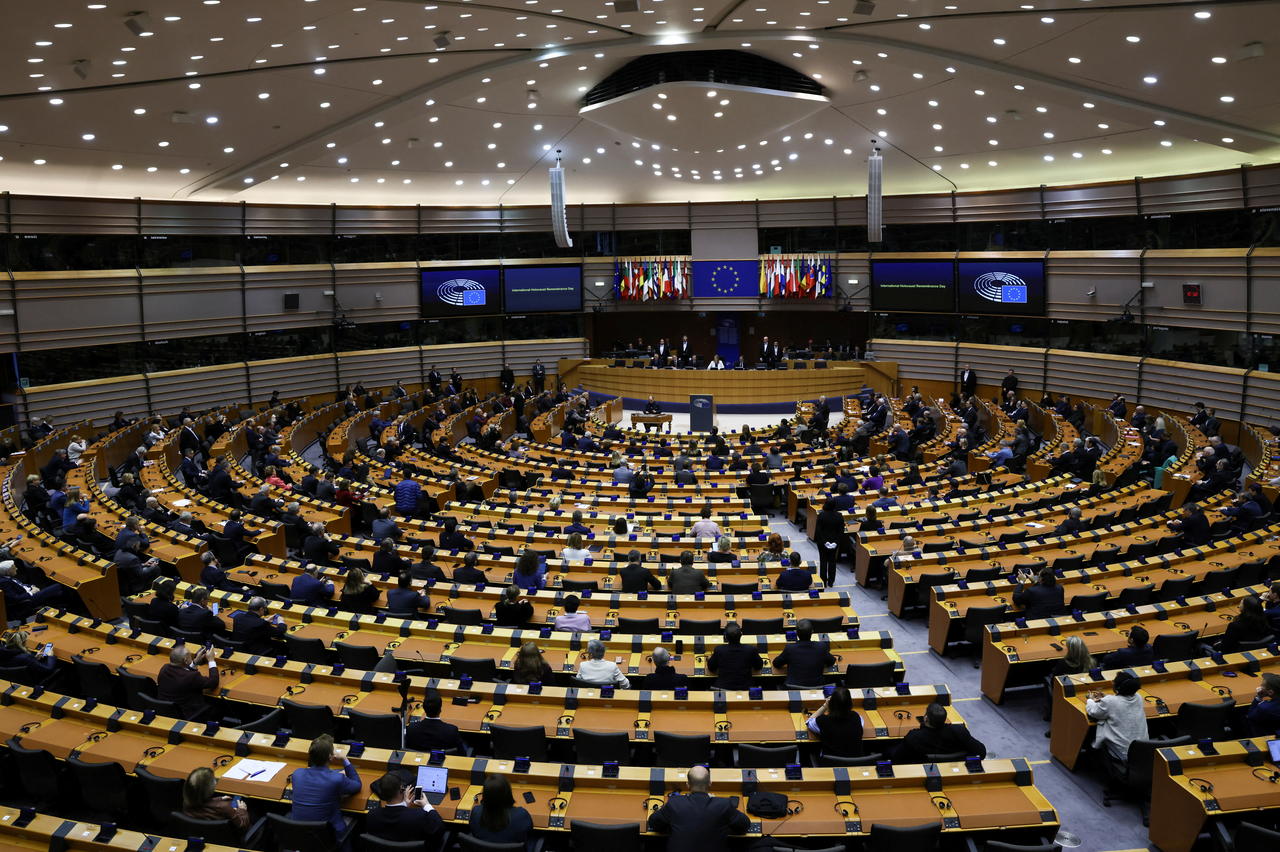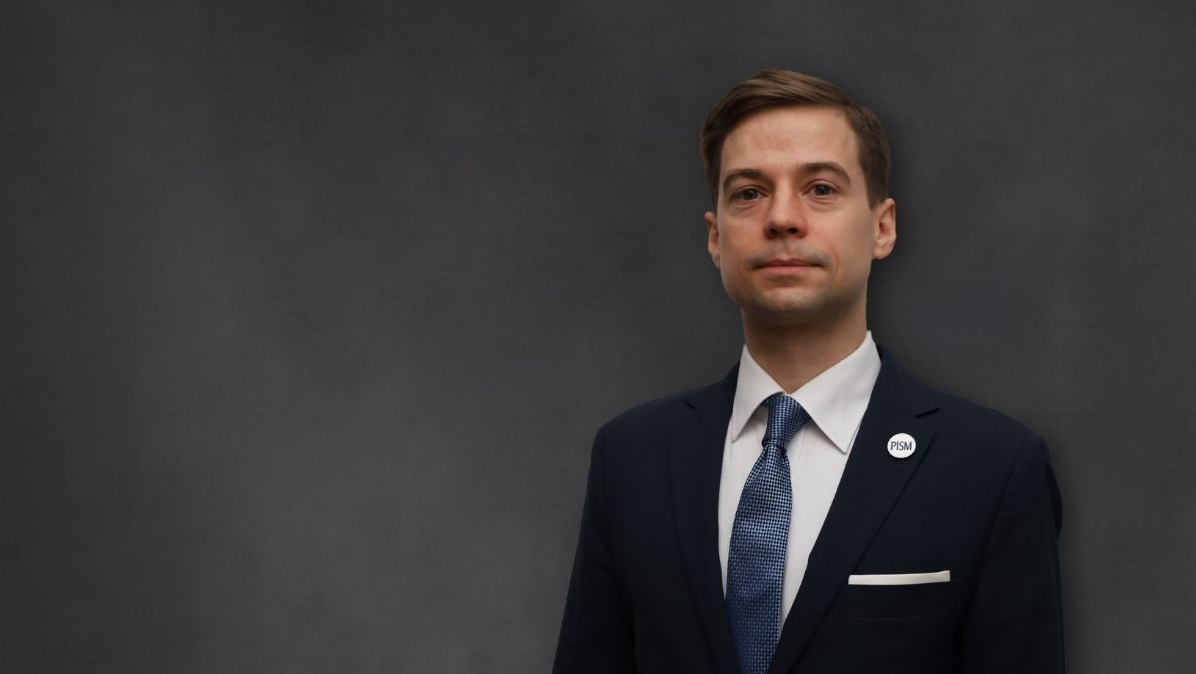EU Seeks Greater Transparency in Wake of EP Corruption Scandal
The European Parliament (EP) corruption scandal, which began with the arrests of then current or former MEPs last December, showed that the mechanisms in place to ensure institutional transparency do not sufficiently protect against the influence of non-EU countries. In addition, the parliament’s internal standards are of limited effectiveness as penalties for non-compliance are not very severe and rarely applied. The effect of the scandal will most likely be to further increase the transparency of EP conduct. The probability of a new body to monitor ethical issues in EU institutions has also increased.
 YVES HERMAN / Reuters / Forum
YVES HERMAN / Reuters / Forum
Corruption Scandal
Last December, four people connected to the EP were arrested at the request of the Belgian prosecutor’s office in cooperation with prosecutors from five other EU countries. Those charged with corruption, money laundering, and participation in a criminal organisation include Eva Kaili, then an EP vice-president with the Progressive Alliance of Socialists and Democrats (S&D) group, her partner Francesco Giorgi (MEP assistant), Pier Antonio Panzeri (former MEP and former S&D member) and Niccolò Figà-Talamanca (then secretary-general of the NGO No Peace Without Justice). At the request of the Belgian prosecutor’s office, the EP voted in February to lift the immunity of two other S&D parliamentarians suspected to be involved in the case, who subsequently were also arrested. According to the prosecution’s findings, Moroccan and Qatari authorities (hence the scandal’s colloquial name, Qatargate) bribed European decision-makers to influence the EP’s actions. The accused were, among other things, supposed to persuade people to vote against resolutions unfavourable to the two countries and to influence the composition of parliamentary committees. The governments of Qatar and Morocco have denied any connection to the case.
EP Transparency Mechanisms
Qatargate highlights the shortcomings in the EP’s transparency system. One issue at the centre of this debate is the transparency register, established in 2011 through an agreement between the EP and the European Commission (EC), with the EU Council joining in 2021. The register contains information on entities that represent interest groups (lobbyists) and data on their representatives and finances. However, the three institutions that use it differ on the mandatory reporting requirements for meetings with representatives of institutions on the register. For example, the EP, unlike the EC, does not prohibit meetings with unregistered lobbyists.
In addition, the EP limited the obligation to publish information about meetings with representatives of entities on the register only to MEPs acting as rapporteur, shadow rapporteur, or committee chair. The register itself does not include representatives of foreign governments, only of interest groups, and it is maintained by only nine staff members, which makes it difficult to systematically check that both the register and the data it contains are up to date (there are currently around 12,000 entries).
There is no system in place within the EP to regularly monitor breaches of internal standards, such as MEPs’ failure to declare travel paid for by entities other than Parliament. The Belgian daily newspaper Le Soir carried out an analysis of the declarations and found that MEPs only started to submit them en masse after the media coverage of Qatargate—almost a third of all declarations were submitted within two months of the outbreak. Of all the declarations made since the beginning of the session, about 27% were late, but no disciplinary sanction has so far been imposed for this.
In any case, the penalties assessed by the EP for breaches of its standards are not severe: the Rules of Procedure provide in such cases for the forfeiture of entitlement to the daily subsistence allowance that MEPs receive during parliamentary sessions, the temporary suspension of participation in its work, limitation of the right to access classified information, and the suspension or removal of an MEP from his or her functions in the EP. In practice, these sanctions are not applied very often, as reported by the Advisory Committee on the Conduct of Members in its annual report. Only one such penalty has been imposed since the beginning of the current parliamentary term.
Proposals for Changes in the EP
Following the Qatargate arrests, the EP passed a resolution outlining a plan to make its functioning more transparent. This included the creation of a special committee tasked with the review of the parliament’s rules on transparency and corruption and a call for one of the chamber’s vice-presidents to deal with the issue of corruption and the influence of other countries in parliament. The EP also reiterated its call to create (together with the Commission) a special independent EU ethics body. Such a demand was already in the parliament’s 2021 resolution and its creation was also announced in 2019 by EC President Ursula von der Leyen, but no major work was carried out in this regard. EC Vice-President Věra Jourová, who was entrusted with the work of creating the oversight body at the beginning of her term, said she would present a draft proposal in March this year.
President Roberta Metsola announced her own plan to make changes in EP ethics conduct. Her proposed solutions largely coincide with those outlined in the EP’s December resolution. The plan includes a mandatory six-month transition (“cooling-off”) period for former MEPs wishing to become lobbyists, requirements to provide a more detailed declaration of financial interests, and the inclusion of meetings with people from non-EU countries in the transparency register (if the MEP has immediate influence on legislation). In addition, unofficial groups within the EP in which MEPs deal with countries outside the Union (“friendship groups with third countries”), through which these countries can seek to influence the work of the parliament, are to be banned. The EP president’s plan is intended to be an ad hoc measure, with the relevant legislation to be voted on this spring, whereas changes in the medium to long term are to be dealt with by the existing Special Committee on Foreign Interference in All Democratic Processes in the EU. The Committee is to analyse the systemic shortcomings of transparency in the EP (its report is due in June this year).
Metsola’s proposals were supported by all of the EP political groups, although some (including the Greens and S&D) felt they should have been more radical. Another proposal for changes to the functioning of the EP, which was put forward by representatives of NGOs (e.g., the Democratisation Policy Council), is to adopt solutions modelled on the U.S. Foreign Agents Registration Act that would require the creation of a database of natural and legal persons and their activities carried out at the behest of a foreign principal.
Conclusions
The corruption affair has had a negative impact on the image of the EP and has been exploited by Eurosceptic circles in the EU who attempt to use it to undermine the credibility of the institution as a whole. However, there is no evidence that the case is systemic, although its consequences have revealed a dangerous tendency for MEPs to benefit from various (legal) benefits offered by private and foreign entities. Offering such perks can be used to influence the legislative process in the EP.
Metsola’s plan, although a step in the right direction, may be insufficient to bring about a real change in the transparency of the functioning of the institution (the same assessment was presented by EU transparency organisations, such as Transparency International EU and Corporate Europe Observatory). Among the shortcomings of the EP president’s proposal are the too-short transition period for former MEPs who want to become lobbyists, the lack of tougher sanctions for breaching internal standards, and the restriction of the obligation to report meetings to a select group of MEPs.
Qatargate has led EU decision-makers to be more ready to support the idea of creating a new body to scrutinise EU institutions rather than extending the remit of existing ones (such as the European Anti-Fraud Office). The effectiveness of the new body will depend on the type of tools it will have at its disposal—whether it will have real capacity to verify fraud (with sufficient staff) and the adequate powers to prosecute it (e.g., the ability to impose substantial fines).


